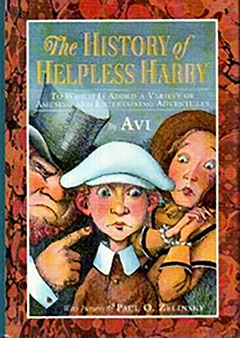 Books evolve in curious ways. Consider The History of Helpless Harry. Or, to give it its full title:
Books evolve in curious ways. Consider The History of Helpless Harry. Or, to give it its full title:
The History of Helpless Harry
To which is added a Variety
Of Amusing and Entertaining
Adventures
I had written, or so I thought, a realistic tale about a boy—in an historical context—who was being pushed about, and generally bullied, until he turns things around and comes out unscathed and triumphant.
I sent the manuscript to my agent. She gave me a call and suggested we have lunch to talk about the book. Of course I met with her.
Lunch was a genial affair, with chit chat about family, publishing, and the like. Not a word about my book. Until she said, “What was your intent with your story?”
“A serious study of how a boy is mistreated, but, with struggle, sees his way to a good end.”
“Serious? In what way?”
“A realistic, and hopefully moving, novel.”
She hesitated a moment and then said, “What would you say if I told you I thought it was very funny?”
“Funny?” I said, shocked.
“Very funny. I suggest you take another look at what you’ve written.”
Rather shaken, I went home and went over what I had written—her words in my head. And “egad!” as they say in old-time melodramas, I had to admit that what I had written was absurd, and yes, possibly a slapstick farce.
I set back to rewriting, and added a variety of amusing and entertaining adventures.
With pictures by Paul O. Zelinsky it worked well. And was quite funny.